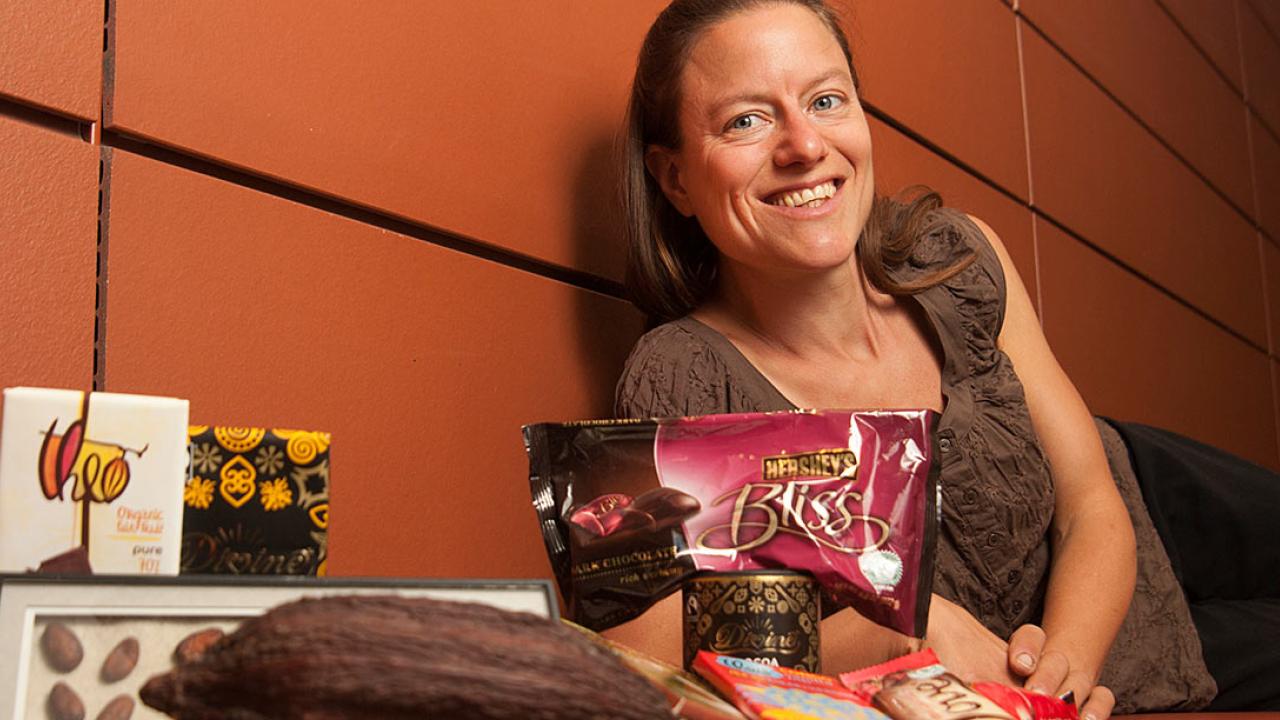Symposium Schedule
Thursday
3-5:30 p.m. — Performances, Buehler Alumni and Visitors Center
5:30 p.m. — Welcome reception, UC Davis Conference Center
6-8 p.m. — Poster session, UC Davis Conference Center
Friday
9 a.m.–3:15 p.m. — Student talks, UC Davis Conference Center
10:30 a.m.–1:45 p.m. — Panel discussions, UC Davis Conference Center
Read more about the individual research descriptions and download the event schedule.
Collectively, their studies begin in the labs and studios of UC Davis, follow skateboarders across campus, and travel around the world.
Students will share their creations and discoveries in some 200 presentations at the Interdisciplinary Graduate and Professional Symposium on the Davis campus Thursday, April 3, and Friday, April 4. The symposium is open to the public.
“This is a good opportunity to get to know the kind of research that is happening at UC Davis,” said Amandeep Kaur, a doctoral student in physics and a member of the symposium’s planning committee.
The research is diverse. Some aim to make contributions to the battles against Alzheimer’s disease, asthma, malaria and cancer. Other research presentations offer a solution for increasing indoor coverage for cell phones and call for including indigenous people and traditional stewardship methods in ecosystem management.
“Interdisciplinary research is a hallmark of graduate studies at UC Davis,” said Jeffery Gibeling, vice provost for Graduate Education and dean of Graduate Studies. “The symposium brings together students from all of our academic graduate programs and professional schools.”
Close to home, students have studied skateboarding as a commuting choice among UC Davis students and the effectiveness of dance movement therapy for people with Parkinson’s disease.
In California, they have examined fire management in the Sierra Nevada and the impact of deficit irrigation in the wine industry. Elsewhere in the United States: family dynamics in Iowa, unemployment insurance and campaign finance disclosure.
Further afield, students have developed health education programs to involve fathers in helping children and mothers live longer in Ghana, and conducted field tests to help farmers in Mexico keep their land productive. And while one presenter studied the soil gas concentrations in Alaskan tundra, another conducted underwater surveys in the Bahamas to study the effects of lobster “condos” or artificial habitats on marine species there.
An art piece will pay tribute to social justice activists who have been assassinated, and one of the performances will feature Mariachi singing.
Melissa Schweisguth will give attendees a sweet taste of her research. A double master’s student in international agricultural development and agricultural and resource economics, she ventured to Cote d’Ivoire to determine if sustainability certification can help cacao farmers improve their incomes and escape rural poverty. After her presentation, she’ll provide samples of certified chocolate.
